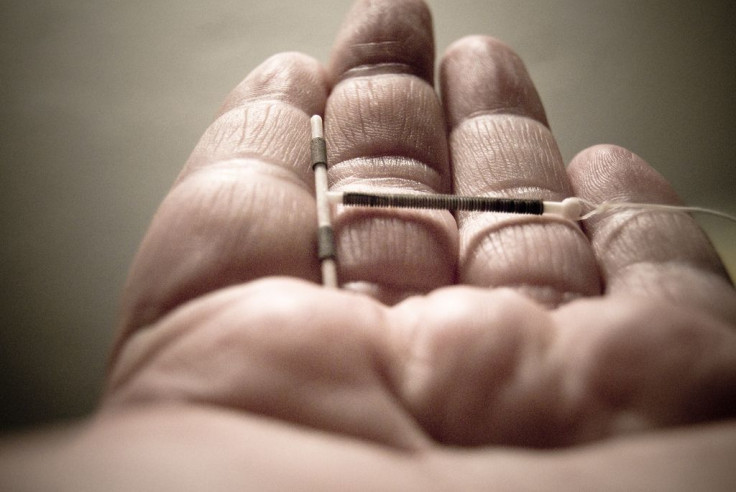Birth Control Implants May Last Longer Than 5 Years, Reducing Costs And Inconvenience

Preliminary research on the lasting effects of birth control implants, such as intrauterine devices (IUDs), may extend beyond the Food and Drug Administration’s (FDA) approval, according to a new study published in the journal Obstetrics & Gynecology.
Currently, hormonal IUDs are approved for five years and contraceptive implants — matchstick-sized rods inserted into the arm — are approved for three years. Researchers from the Washington University School of Medicine are conducting an ongoing study of 500 women whose contraceptives were within six months of expiring upon enrolling; 263 women were using IUDs and 237 were using implants. While researchers hope to enroll up to 800 women, it so far seeems seems these devices remain highly effective a year after their approved use.
"This research is important because extended use of these devices will reduce cost to both the individual and insurer, and improve convenience for women, who can delay removal and re-insertion," said Colleen McNicholas, study author and assistant professor of obstetrics and gynecology at WU, in a press release.
Dr. Jeffrey Peipert, another study author and Robert J. Terry Professor of Obstetrics and Gynecology, added the longer a contraceptive method is effective, the bigger impact it has. "In the long term, this work has the potential to change how we provide contraceptive methods around the world and can enable women to control their reproductive health and family size,” he said.
Ultimately, study authors hope to determine that birth control implants are effective for up to three years beyond their current approved use.
The Department of Health & Human Services reports that out of 100 women using IUDs for a year, about one may become pregnant. IUDs are better at preventing pregnancy than condoms, the pill, the patch, the ring, and the shot. Dr. Jill Maura Rabin told WebMD that she hopes the present research encourages women to further inquire about IUDs. As it stands, only 10 to 15 percent of women are opting for this type of birth control.
"Hopefully this new evidence will encourage more women to consider them," she said. "The ability to keep these devices in place for longer periods will not only reduce patients' contraceptive costs, but will add convenience and flexibility to their lives."
IUDs and contraceptive implants need to be inserted by your health care provider, so consult your doctor if you're interested in learning more about using the device.
Source: McNicholas C, Maddipati R, Zhao Q, Swor E, Peipert JF. Use of the estronogestrel implant and levonorgestrel intrauterine device beyond the U.S. Food and Drug Administration-approved duration. Obstetrics & Gynecology. 2015.



























